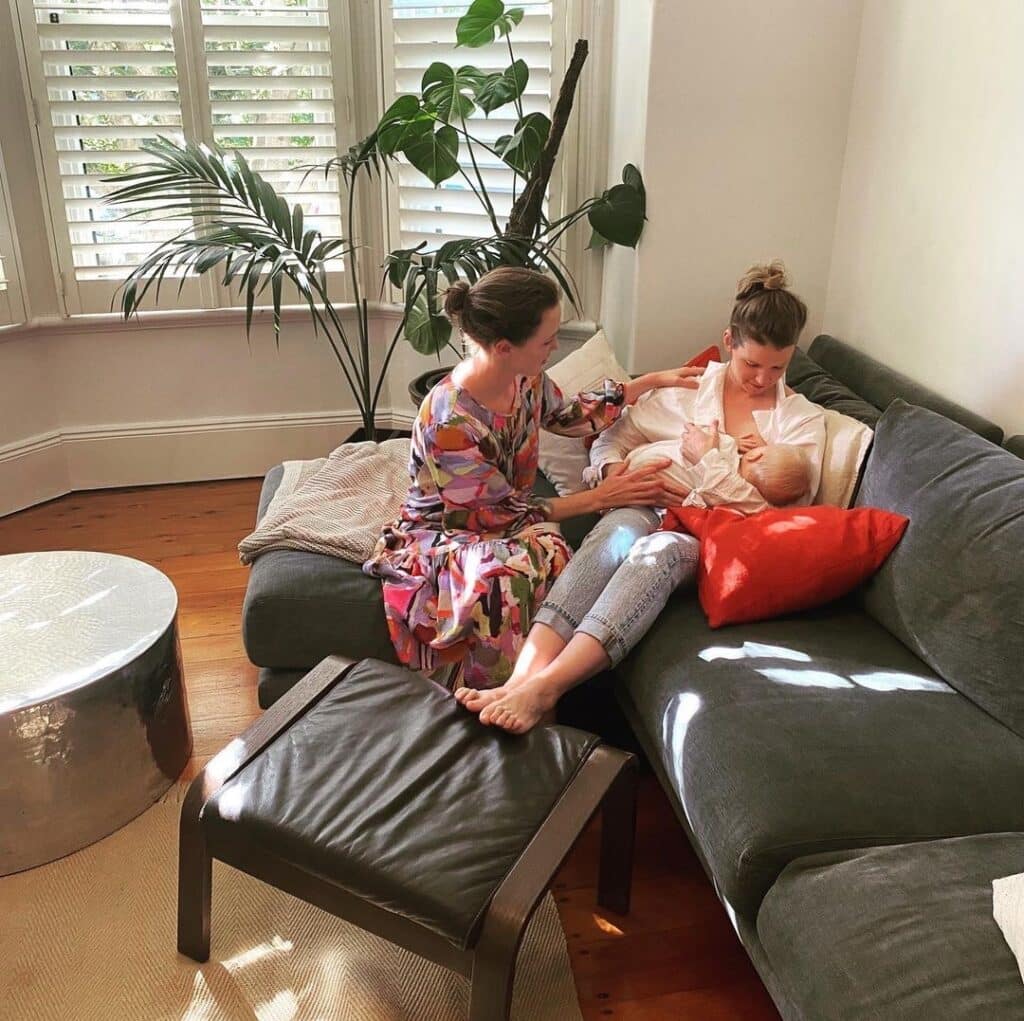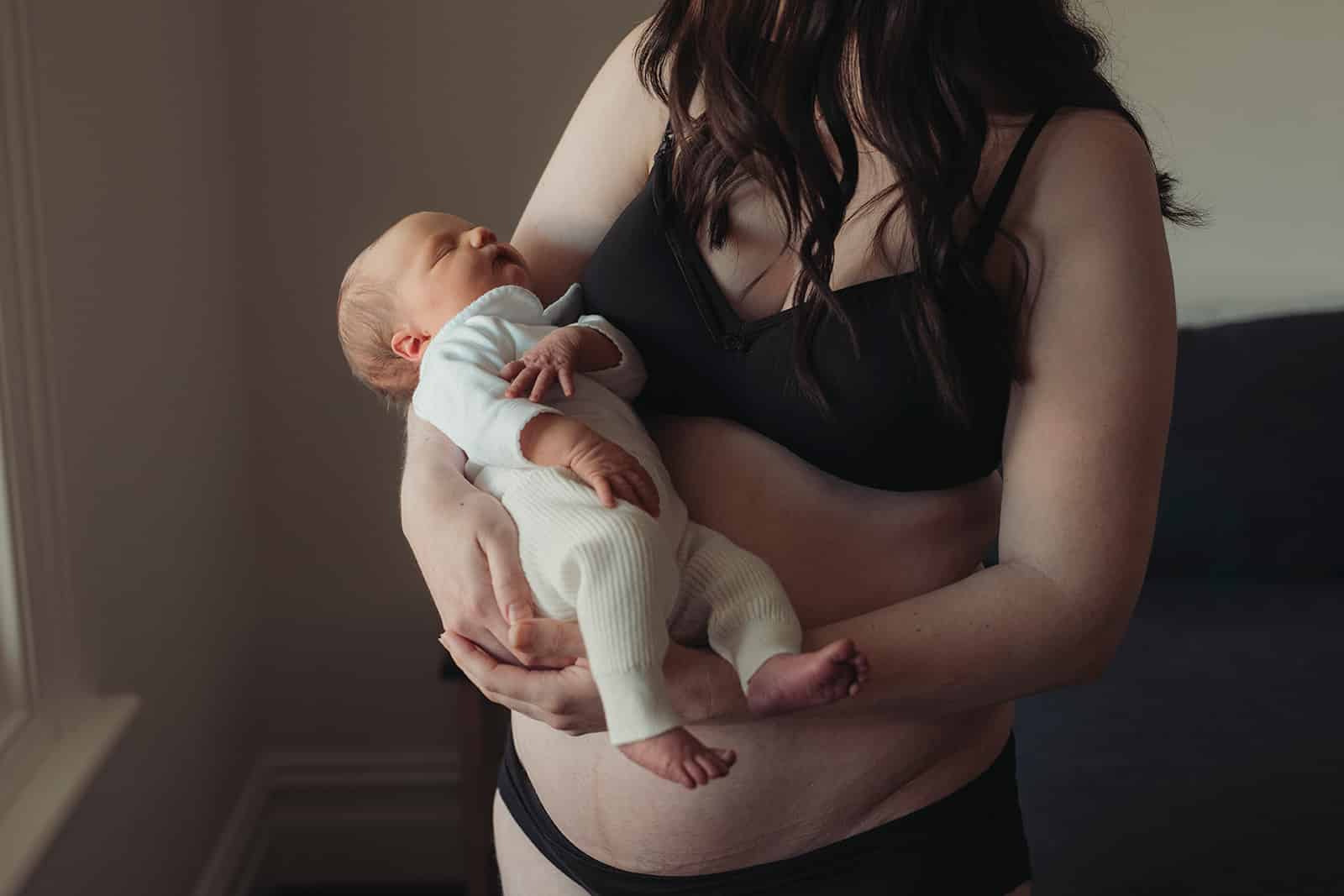Postpartum How to Access Breastfeeding, Sleep and Mental Health Support in Postpartum
How to Access Breastfeeding, Sleep and Mental Health Support in Postpartum

In early postpartum, breastfeeding and sleep challenges are common and can contribute to anxiety and overwhelm. Unless you have a private midwife, there’s a distinct void of health services in postpartum which makes it challenging to access professional support. It’s definitely beneficial to be aware of this in pregnancy so you can adequately prepare for postpartum.
If you want a thorough guide to support options in the first six weeks after birth, listen to episode 403 with Dr Eliza Hannam who is a GP, International Board Certified Lactation Consultant (IBCLC) and a Neuroprotective Development Care (NDC) practitioner and takes you through common postpartum challenges and how support can be so beneficial.
What is an NDC practitioner?
Traditionally General Practitioners (GP) – aka, your family doctor – are not trained in breastfeeding or baby sleep support. Thankfully there is a new generation of GPs who have completed Possums Neuroprotective Development Care training which qualifies them to share breastfeeding guidance and sleep support based on infant biology. This means that in your appointment your GP will be discussing and endorsing safe co-sleeping as well as offering you guidance on breastfeeding techniques. You can find a NDC Practitioner HERE and many appointments will be eligible for Medicare rebates.
What is an IBCLC?
An international Board Certified Lactation Consultant is a health professional (GP, obstetrician, midwife, physiotherapist etc) who has completed over 90 hours of education, 1000 hours of patient care and a comprehensive examination. This ensures they are the most qualified professionals working in the clinical breastfeeding space. Not all IBCLC’s are doctors or independent midwives, hence if you’re paying privately you won’t be able to get a Medicare rebate. The Breastfeeding Medicine Network Australia/NZ is a registry of doctors who are IBCLCs or who have other further training in breastfeeding medicine and you can search the directory HERE. If you require the support of a lactation consultant but want to access public care, contact your local public hospital or community health centre.
What is a Mental Health Care Plan?
Available to everyone with a Medicare card, a mental health plan offers you 10 subsidised sessions with a psychologist within the calendar year. If you have a history of mental health concerns or you are experiencing anxiety or depression in pregnancy, it can be helpful to set up a mental health care plan with your GP before your baby is born. This means that in postpartum, if you feel like you need professional support from a mental health worker, you’ve done the groundwork to ensure your sessions are subsidised. Of course, perinatal mental health issues can arise at any time. If you need immediate support, contact PANDA and then make an appointment with your GP – these are great first steps towards seeking help.

Bank Australia is a customer-owned bank and they believe in supporting communities around the country. They commit up to 4% of their annual after-tax profit to their impact fund and every year, they use part of that fund to create community customer grants which are available to organisations who are creating change. Bank Australia invests in the people and groupsthat need it most. Making a positive social impact is a priority, so they support the organisations that aim to prevent family violence and provide a safe space for women and children experiencing domestic violence. Bank Australia works towards a fair, equal and welcoming country and they do that by supporting grassroots organisations in your local community. To make the shift with 180,000 other Australians head to bankaustralia.com.au/birth
Categories
Related Products
-
Birth Combs: Harness Your Body’s Natural Pain Relief
$24.95Crafted from smooth, natural wood, our birth combs activate specific pressure points in your hands that trigger your body’s innate pain-relieving responses.
Get your copy of our Perineal Massage Guide in your inbox
Keep Reading
We think you might enjoy these articles

Why planning for postpartum is just as important as planning for birth – and how to do it right

Cracked Nipples: Causes, Treatment and Prevention

Caesarean Birth Recovery

What is a C-Section Shelf?
@AustralianBirthStories
Follow along with us
@AustralianBirthStories
Follow along with us
@AustralianBirthStories
Follow along with us
@AustralianBirthStories
Follow along with us
@AustralianBirthStories
Follow along with us
@AustralianBirthStories
Follow along with us
@AustralianBirthStories
Follow along with us
@AustralianBirthStories
Follow along with us
@AustralianBirthStories
Follow along with us
@AustralianBirthStories
Follow along with us
@AustralianBirthStories
Follow along with us
@AustralianBirthStories
Follow along with us




